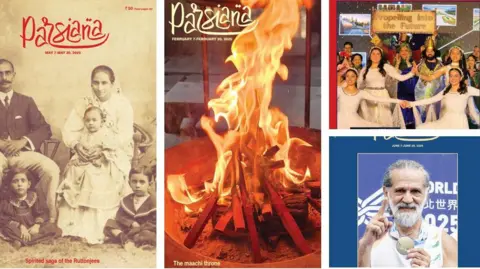When gunfire erupted near her Damascus home in Ashrafiyat Sahnaya, Lama al-Hassanieh locked herself in the bathroom, terrified as armed men shouted threats against the Druze community. More than a hundred lives were lost in sectarian violence in April, leaving the Druze, a religious minority with roots in Shia Islam, uncertain about their safety in post-conflict Syria.
Under the regime of Bashar al-Assad, many Druze aligned with the government, believing that loyalty would safeguard them from the chaos that engulfed other regions. However, with the tide turning against Assad, many Druze fear they have become targets for Islamist militias, raising alarm about their vulnerability in the political landscape.
The violence escalated following an alleged audio recording of a Druze religious leader, which sparked a wave of sectarianism across the country. The Syrian Observatory for Human Rights reported that at least 137 people were killed during several days of unrest, igniting fear and distrust in the already marginalized Druze neighborhoods.
Lama Zahereddine, a pharmacy student on the brink of graduation, recounted terrifying moments as violence seeped into her village, prompting her uncle to evacuate women and children while men stayed behind to defend the community. The brutality of the attacks was reminiscent of a dark chapter in Syria’s recent past, one she thought had ended – now her university dorm was also a ground for assaults against her and her fellow Druze students.
Those who initiated hostility during the clashes often claimed the Druze left their universities by choice, further alienating them from peer support. "You never know how people really see you," noted one student, emphasizing the precarious nature of trust within their community.
Amid this, a volunteer group of Druze men from Suweida attempted to offer protection but faced brutal ambushes. The ingrained fear of a burgeoning Sunni-dominated governance without space for religious minorities has many Druze yearning for a law-abiding state to ensure their security and rights.
Despite the Syrian government’s assurances of sovereignty and unity, the faith of the Druze community has faltered in its ability to protect them. Airstrikes by Israel in the region sought to affirm safety for Druze interests, reflecting the broader regional dynamics at play.
In Ashrafiyat Sahnaya, the atmosphere may appear calmer now, yet anxiety lingers as community members reassess their environment. With calls for accountability and justice for the violations they've endured, Druze leaders assert their quest for equal rights within Syria, yearning to be recognized as integral parts of the nation, not marginalized minorities.



















